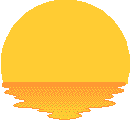At a time Germans call themselves Deutsch (people, who, consequently, speak a deutlich, i.e. 'articulate', language), speakers of Slavonic languages refer to them as němcy 'the mute', because of their inability to speak Slavonic. The word has sneaked into Ottoman territory, settling down in Arabic under the guise of نمسا Namsa ‘Austria’, a country Turks themselves now call Avusturya. Arabs, too, referred to non-Arabic-speaking populations as الأعاجم al-acāžim 'the mute'. In Turkish, a foreigner to this day is called yabancı – literally, a 'wild person'. The Chinese, who call themselves 中国人 Zhōngguórén 'Middle Country people', referred to many a neighbour in the same way: 胡人 húrén 'wild people'. The concept of barbarism, however, has rather had to do with the other's inability to articulate 'meaningful' sounds than with physical wilderness, the word being a Greek onomatopoeia implying a 'mumbo-jumbo' or, as the Chinese put it more precisely, 胡说 húshuō 'nonsense' – literally, 'barbarian talk'. The latter is reminiscent of Russian чушь [čuš] 'non-sense', a derivative of чужой [čužój] 'alien', itself from чудь [čuď] 'foreign tribe', a borrowing from Proto-Germanic *þeudō 'people; tribe' – whence the Germans' self-appellation, Deutsch, the English appellation of the people of the Netherlands, Dutch, and Italian tedesco 'German'. French tout, Italian tutto and Spanish todo – all meaning 'all' – are all cognate with Proto-Germanic *þeudō 'people; tribe', a word going back to Proto-Indo-European *tewtéh₂ 'nation; people', whence Lithuanian1 tauta 'idem' – cf. English strange; stranger; estranged (ultimately from Latin extraneus 'foreign; strange' through Middle French estrange), but also Arabic غريب [ğarīb] 'strange; stranger', from غرب [ğarb] 'west', i. e. غروب [ğurūb] 'sunset' (hence 'darkness; the unknown; unfamiliar').
1 Lithuanian is the most archaic Indo-European language on Earth.
